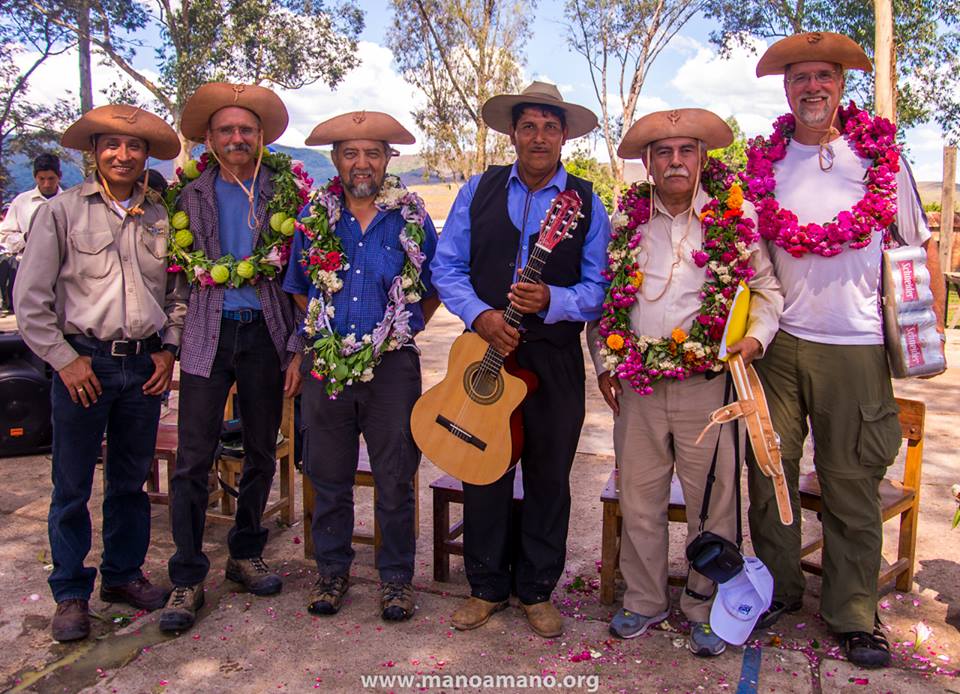#ThrowbackThursday – Transporting Fuel by Boat
In late October 2014, Mano a Mano dedicated a 60-kilometer (37+ miles) road project in El Palmar, Bolivia. This was one of our most challenging projects in our history, and for us was a huge accomplishment to complete.
Project Challenges
The challenges began with simply reaching the site. Travel from Cochabamba to Culpina took 20 hours in a four-wheel drive vehicle. The site itself was only accessible by horseback; transport of heavy equipment to the site took 6-7 days. Equipment operators and mechanics faced months of toil under exceedingly difficult circumstances, combating constant attacks from biting insects, extreme heat, and heavy rains with little opportunity to find protective shelter. Thirty community volunteers worked alongside the operators every day, clearing trees and bush, and delivering fuel. During the rainy season, fuel and other needed items had to be transported across several rivers by boat. (Notice the Minnesota tab on the boat; it was sent to Bolivia in one of our container shipments of donated supplies. Earlier this month volunteers loaded our most recent shipment of more than 85,000 pounds of supplies, which are now en route to Bolivia.)

Using a boat, shipped from Minnesota, to transport fuel across the river for the El Palmar road project.
The Road Connects Many Major Markets in the Region
Now that the road is completed, it connects this region to main roads that travel to Cochabamba, Tarija, and Santa Cruz, each of which are major markets for produce. In addition to Culpina’s residents, 41,000 people have access to the main road to Tarija and are connected to two major cities and two departments of Bolivia.

One of the dedication events for the El Palmar road in late 2014. Check out 58 more pictures on Facebook.
